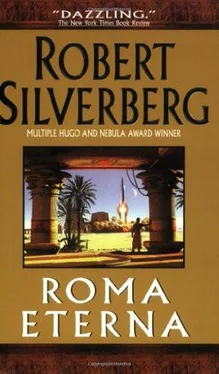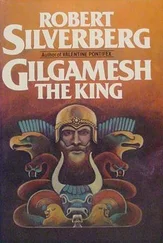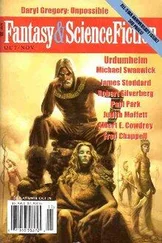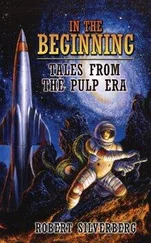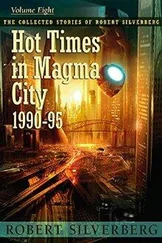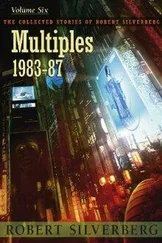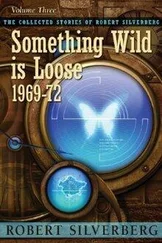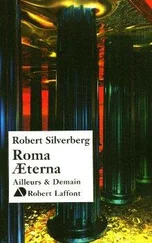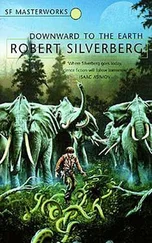Robert Silverberg - A Hero of the Empire
Здесь есть возможность читать онлайн «Robert Silverberg - A Hero of the Empire» весь текст электронной книги совершенно бесплатно (целиком полную версию без сокращений). В некоторых случаях можно слушать аудио, скачать через торрент в формате fb2 и присутствует краткое содержание. Год выпуска: 2003, ISBN: 2003, Издательство: HarperCollins, Жанр: Альтернативная история, на английском языке. Описание произведения, (предисловие) а так же отзывы посетителей доступны на портале библиотеки ЛибКат.
- Название:A Hero of the Empire
- Автор:
- Издательство:HarperCollins
- Жанр:
- Год:2003
- ISBN:978-0-380-97859-5
- Рейтинг книги:4 / 5. Голосов: 1
-
Избранное:Добавить в избранное
- Отзывы:
-
Ваша оценка:
- 80
- 1
- 2
- 3
- 4
- 5
A Hero of the Empire: краткое содержание, описание и аннотация
Предлагаем к чтению аннотацию, описание, краткое содержание или предисловие (зависит от того, что написал сам автор книги «A Hero of the Empire»). Если вы не нашли необходимую информацию о книге — напишите в комментариях, мы постараемся отыскать её.
A Hero of the Empire — читать онлайн бесплатно полную книгу (весь текст) целиком
Ниже представлен текст книги, разбитый по страницам. Система сохранения места последней прочитанной страницы, позволяет с удобством читать онлайн бесплатно книгу «A Hero of the Empire», без необходимости каждый раз заново искать на чём Вы остановились. Поставьте закладку, и сможете в любой момент перейти на страницу, на которой закончили чтение.
Интервал:
Закладка:
In the main the Saracens are a wandering race who endlessly guide their flocks of horses and sheep and camels back and forth across this hard arid land, seeking out herbage for their beasts where they can. All the year long they follow the seasons about, moving from seacoast to mountains to plains, so that they can take advantage of such little rainfall as there is, falling as it does in different months in these different regions. From time to time they venture farther afield—to the banks of the Nile or the farming villages of Syria or the valley of the Euphrates—to descend as brigands upon the placid farmers of those places and extort their harvests from them.
The harshness of the land makes it a place of danger and distress, of rapine and fear. In their own self-interest the Saracens form themselves into little tribal bands under the absolute government of fierce and ruthless elders; warfare between these tribes is constant; and so vehement is each man’s sense of personal honor that offense is all too easily given and private blood-feuds persist down through generation after generation, yet ancient offenses never seem to be wiped out.
Two settlements here have come to be dignified with the name of “cities.” Cities, Horatius! Mudholes with walls about them, rather. In the northern part of this desert one finds Iatrippa, which in the Saracens’ own tongue is named Medina . It has a population of fifteen thousand or so, and as Arabian villages go is fairly well provided with water, so that it possesses abundant date groves, and its people live comfortable lives, as comfort is understood in this land.
Then, a ten-day caravan journey to the south, through somber thorny land broken now and then by jutting crags of dark stone, is the town our geographers know as Macoraba, the Mecca of the locals. This Mecca is a bigger place, perhaps twenty-five thousand people, and it is of such ineffable ugliness that Virgil himself would not have been able to conceive of it. Imagine, if you will, a “city” whose buildings are drab hovels of mud and brick, strung out along a rocky plain a mile wide and two miles long that lies at the foot of three stark mountains void of all vegetation. The flinty soil is useless for agriculture. The one sizable well yields bitter water. The nearest pastureland is fifty miles away. I have never seen so unprepossessing a site for human habitation.
You can readily guess, I think, which of the two cities of Arabia Deserta our gracious Emperor chose as my place of exile.
“Why,” said I to Nicomedes the Paphlagonian, who was kind enough to invite me to be his dinner guest on my second depressing night in Mecca, “would anyone in his right mind have chosen to found a city in a location of this sort?”
Nicomedes, as his name will have indicated, is a Greek. He is the legate in Arabia Deserta of our Emperor’s royal colleague, the Eastern Emperor Maurice Tiberius, and he is, I suspect, the real reason why I have been sent here, as I will explain shortly.
“It’s in the middle of nowhere,” I said. “We’re forty miles from the sea and on the other side there’s hundreds of miles of empty desert. Nothing will grow here. The climate is appalling and the ground is mostly rock. I can’t see the slightest reason why any person, even a Saracen, would want to live here.”
Nicomedes the Paphlagonian, who is a handsome man of about fifty with thick white hair and affable blue eyes, smiled and nodded. “I’ll give you two, my friend. One is that nearly all commerce in Arabia is handled by caravan. The Red Sea is a place of tricky currents and treacherous reefs. Sailors abhor it. Therefore in Arabia goods travel mainly by land, and all the caravans have to pass this way, because Mecca is situated precisely at the midpoint between Damascus up north and the thriving cities of Arabia Felix down below us, and it also commands the one passable east-west route across the remarkably dreadful desert that lies between the Persian Gulf and the Red Sea. The caravans that come here are richly laden indeed, and the merchants and hostelkeepers and tax collectors of Mecca do the kind of lively business that middlemen always do. You should know, my dear Leontius Corbulo, that there are a great many very wealthy men in this town.”
He paused and poured more wine for us: some wonderful sweet stuff from Rhodes, hardly what I would have expected anyone in this remote outpost to keep on hand for casual guests.
“You said there were two reasons,” I reminded him, after a time.
“Oh, yes. Yes.” He had not forgotten. He is an unhurried man. “This is also a sacred city, do you see? There is a shrine in Mecca, a sanctuary, which they call the Kaaba. You should visit it tomorrow. It’ll be good for you to get out and about town: it will make the time pass more cheerfully. Look for a squat little cubical building of black stone in the center of a great plaza. It’s quite unsightly, but unimaginably holy in Saracen eyes. It contains some sort of lump of rock that fell from heaven, which they think of as a god. The Saracen tribesmen from all over the country make pilgrimages here to worship at the Kaaba. They march round and round it, bowing to the stone, kissing it, sacrificing sheep and camels to it, and afterward they gather in the taverns and hold recitations of war poetry and amorous verses. Very beautiful poetry, in its own barbarous fashion, I think. These pilgrims come here by the thousands . There’s money in having the national shrine in your town, Corbulo: big money.”
His eyes were gleaming. How the Greeks love money-making!
“Then, too,” he went on, “the chieftains of Mecca have very shrewdly proclaimed that in the holy city all feuds and tribal wars are strictly forbidden during these great religious festivals.—You know about the Saracens and their feuds? Well, you’ll learn. At any rate, it’s very useful to everybody in this country for one city to be set aside as a place where you don’t have to be afraid of getting a scimitar in your gut if you chance to meet the wrong person while crossing the street. A lot of business gets done here during the times of truce between people from tribes that hate each other the rest of the year. And the Meccans take their cut, do you follow me? That is the life of the city: collecting percentages on everything. Oh, this may be a dismal hideous town, Corbulo, but there are men living here who could buy the likes of you and me in lots of two dozen.”
“I see.” I paused just a moment. “And the Eastern Empire, I take it, must be developing significant business interests in this part of Arabia, or else why would the Eastern Emperor have stationed a high official like you here?”
“We’re beginning to have a little trade with the Saracens, yes,” the Greek said. “Just a little.” And he filled my glass yet again.
The next day—hot, dry, dusty, like every day here—I did go to look at this Kaaba of theirs. Not at all hard to find: right in the center of town, in fact, standing by itself in the midst of an empty square of enormous size. The holy building itself was unimposing, perhaps fifty feet high at best, covered completely by a thick veil of black cloth. I think you could have put the thing down in the courtyard of the Temple of Jupiter Capitolinus or any of Roma’s other great temples and it would utterly disappear from view.
This did not seem to be pilgrimage season. There was no one around the Kaaba but a dozen or so Saracen guards. They were armed with such formidable swords, and looked so generally unfriendly, that I chose not to make a closer inspection of the shrine.
My early wanderings through the town showed me very little that indicated the presence of the prosperity that Nicomedes the Paphlagonian had claimed was to be found here. But in the course of the next few days I came gradually to understand that the Saracens are not a people to flaunt their wealth, but prefer instead to conceal it behind unadorned façades. Now and again I would have a peek through a momentarily opened gate into a briefly visible courtyard and got the sense of a palatial building hidden back there, or I would see some merchant and his wife, richly robed and laden with jewels and gold chains, climbing into a shrouded sedan-chair, and I knew from such fitful glimpses that this must indeed be a wealthier city than it looked. Which explains, no doubt, why our Greek cousins have started to find it so appealing.
Читать дальшеИнтервал:
Закладка:
Похожие книги на «A Hero of the Empire»
Представляем Вашему вниманию похожие книги на «A Hero of the Empire» списком для выбора. Мы отобрали схожую по названию и смыслу литературу в надежде предоставить читателям больше вариантов отыскать новые, интересные, ещё непрочитанные произведения.
Обсуждение, отзывы о книге «A Hero of the Empire» и просто собственные мнения читателей. Оставьте ваши комментарии, напишите, что Вы думаете о произведении, его смысле или главных героях. Укажите что конкретно понравилось, а что нет, и почему Вы так считаете.
